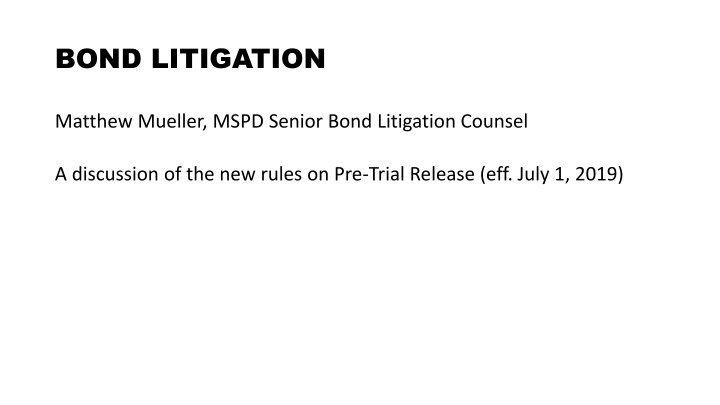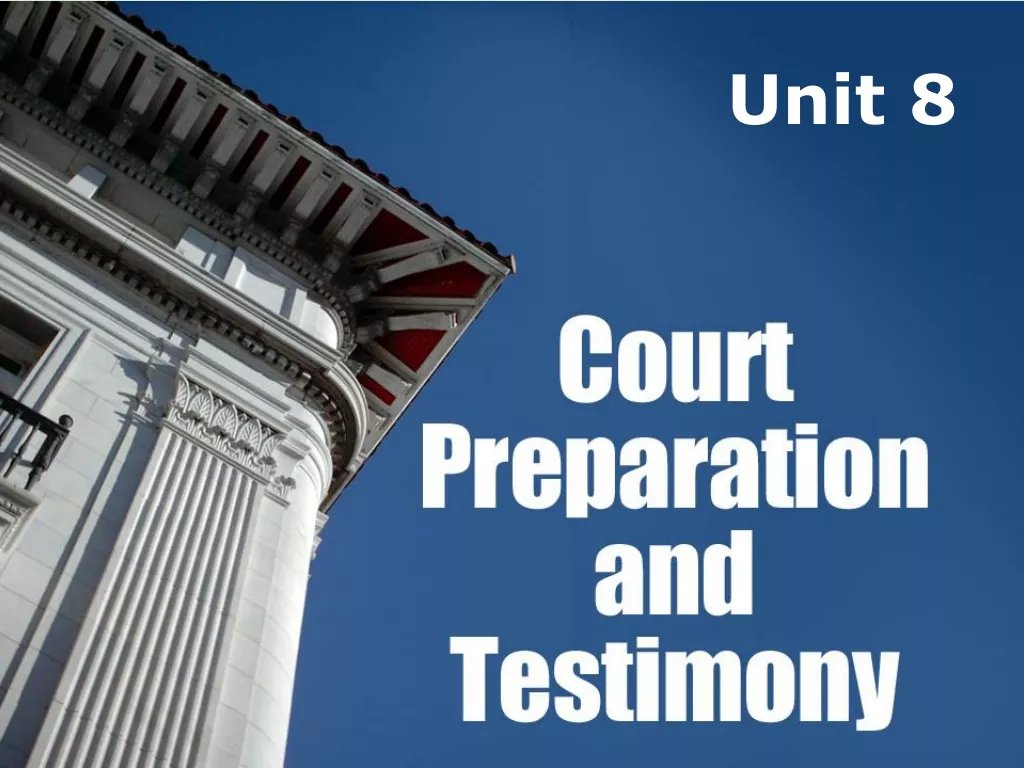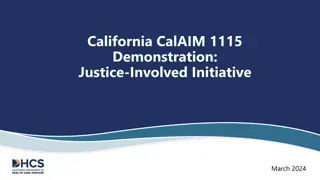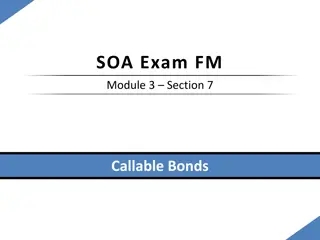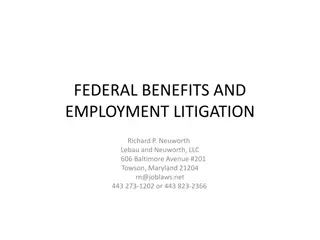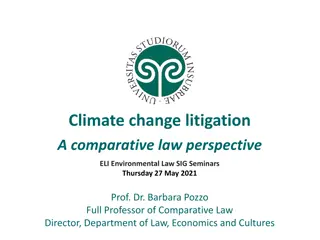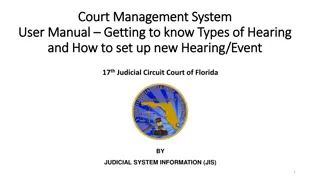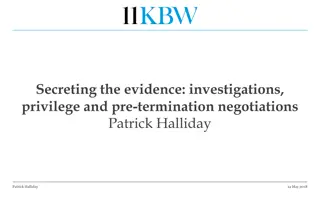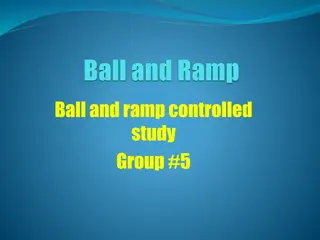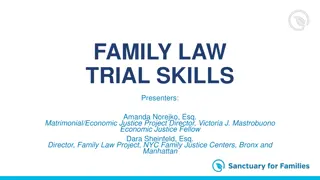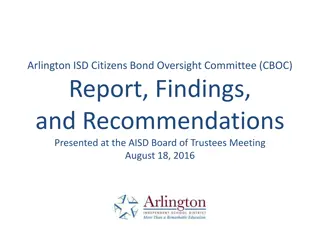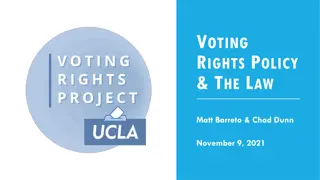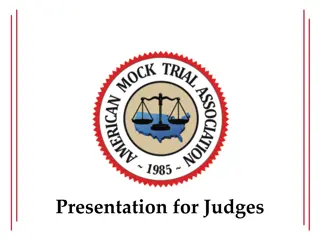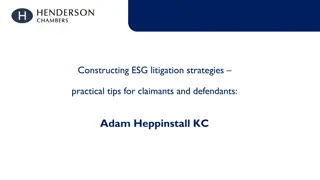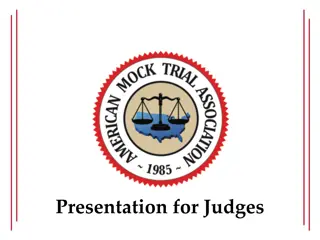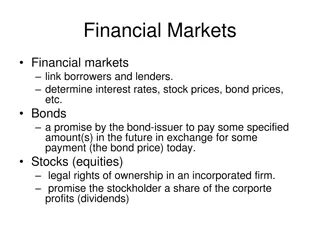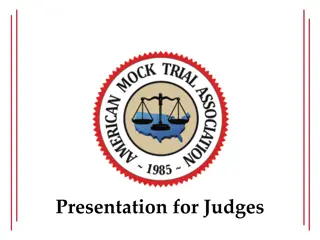New Rules on Pre-Trial Release in Bond Litigation
The discussion covers the new rules on Pre-Trial Release effective from July 1, 2019, including requirements for the issuance of warrants, hearing procedures, ways clients may sit in jail, analysis under Rule 33.01(c), and the impact on equal protection in setting financial bond conditions. The content emphasizes the importance of considering individual circumstances and avoiding detaining individuals solely due to financial limitations.
Download Presentation

Please find below an Image/Link to download the presentation.
The content on the website is provided AS IS for your information and personal use only. It may not be sold, licensed, or shared on other websites without obtaining consent from the author.If you encounter any issues during the download, it is possible that the publisher has removed the file from their server.
You are allowed to download the files provided on this website for personal or commercial use, subject to the condition that they are used lawfully. All files are the property of their respective owners.
The content on the website is provided AS IS for your information and personal use only. It may not be sold, licensed, or shared on other websites without obtaining consent from the author.
E N D
Presentation Transcript
BOND LITIGATION Matthew Mueller, MSPD Senior Bond Litigation Counsel A discussion of the new rules on Pre-Trial Release (eff. July 1, 2019)
REQUIREMENTS FOR ISSUANCE OF WARRANT A summons shall be issued unless the court believes: (1) the defendant will not appear upon the summons; or (2) the defendant poses a danger to victim or community Rule 21.03(a) for misdemeanors Rule 22.04(a) for felonies If warrant is issued, court must follow analysis in Rule 33.01 Rule 21.03(c) for misdemeanors Rule 22.04(d) for felonies
HEARING REQUIREMENTS A defendant arrested under a warrant shall be brought to court for the initial appearance no later than 48 hours after confinement. Rule 21.09 for misdemeanors Rule 22.07 for felonies A defendant who is not released after initial appearance shall have a review hearing no later than 7 days after the initial appearance. Rule 33.05. At such hearing, the court shall make written or oral findings on the record. Rule 33.01(f)
TWO WAYS CLIENTS SIT IN JAIL Unattainable Financial Bond Conditions Rule 33.01(c) Detention Order (No Bond/Bond Denied) Rule 33.01(d) In either case, court must base determination on individual circumstances set out in Rule 33.01(e)
ANALYSIS UNDER RULE 33.01(c) Step 1: court shall release on own recognizance (PR/ROR) If not 1, then: Step 2: court shall set least restrictive combination of conditions Step 2(a): court shall first consider non-monetary conditions If not 2, then: Step 3: If setting monetary condition, court must consider ability to pay Step 3(a): excessive monetary condition is impermissible (Step 3 is last resort) Note again: this analysis is required even in the initial warrant.
THE EQUAL PROTECTION REVOLUTION In setting a financial bond condition, the court has already determined that the defendant is fit and appropriate for release. Hence, the only people who remain incarcerated on financial bond conditions are the poor and indigent. Thus, an otherwise appropriate person for release is being detained solely on account of their poverty. That is an equal protection violation. criminal defendants, presumed innocent, must not be confined in jail merely because they are poor. Jones v. City of Clanton no person may, consistent with Equal Protection Clause of the Fourteenth Amendment, be held in custody after an arrest because the person is too poor to post a monetary bond. Thompson v. Moss City
ANALYSIS UNDER RULE 33.01(d) Court can order defendant detained without bond if court concludes no combination of conditions will secure safety of community. Court must base determination upon clear and convincing evidence See also 544.676, RSMo which requires a showing by the state Defendant has right to go to trial within 120 days of written request
APPELLATE REVIEW Remedial Writ (Writ of Prohibition/Writ of Mandamaus) Rule 33.09 Habeas Corpus (illegal or improper restraint) Rule 91 See SXR Fleming v. Board of Probation and Parole, for purposes of habeas corpus, any restraint which precludes freedom of action is sufficient, and actual confinement is not necessary. (Mo. banc 2017)
CONCLUSION We have a responsibility to ensure those accused of crime are fairly treated according to the law, and not their pocket books. Let s save our prisons for those we are afraid of, not just mad at. Chief Justice Zel Fischer, Missouri Supreme Court, 2019 State of the Judiciary Address Our current bail system is, in effect, punishment for the crime of poverty. Ronald Goldfarb, Ransom: A Critique of the American Bail System Remember, our clients are innocent! They do not belong in jail! Their only crime is their poverty. Courts cannot hold our clients for ransom.
